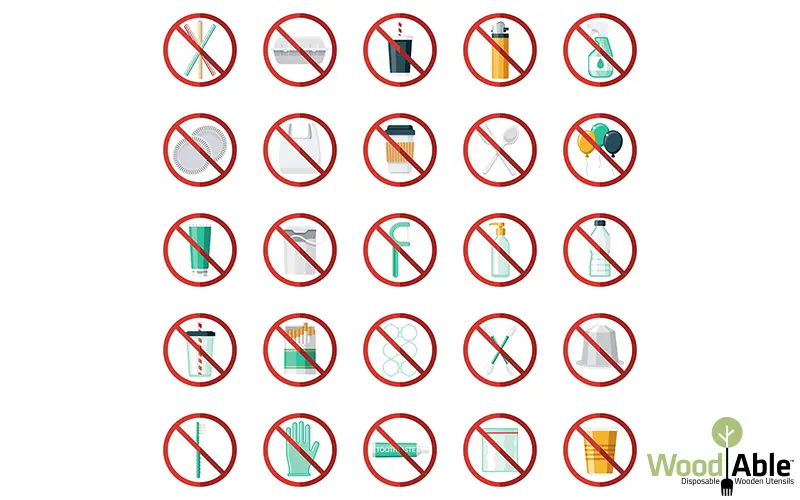WoodAble Blog
The UK is Banning Single Use Plastics
The United Kingdom made it official this year: they are banning single-use plastics as of October 1, 2023, backed enthusiastically by 95% of individuals polled. Starting in October, retailers and food vendors cannot use these items, even if they have some left in stock. They are being encouraged to find immediate alternatives.
It is estimated that England alone uses 2.7 billion items of single-use cutlery and 721 million single-use plastic plates per year, mostly for takeaway (orders to go).
The ban includes recycled, compostable, biodegradable, and polystyrene, which is often made into styrofoam. Specific items banned include microbeads, coffee stirrers, most sipping straws, cotton buds (Q-Tips) and balloon sticks. Next on the chopping block, pending further studies, are wet wipes and tobacco filters.
For now, the ban will not apply to plates, trays and bowls that are pre-filled and packaged. These are part of an earlier Extended Producer Responsibility Scheme (plan) to tax the manufacturers of these products until they make items that recycle more easily.
A charge for plastic carry bags at the supermarket has reduced their use by 97% according to the UK Department of Environment, Food and Rural Affairs. The department is considering requiring deposits on plastic bottles to keep them from becoming litter on the streets.
The European Union is also stepping up efforts, evaluating the entire life cycle of plastic packaging for everything from the sticky labels on fruits and vegetables to those convenient coffee pods. One simple suggestion is to provide instructions in plain language on how to recycle the items. Cryptic triangle icons have led to frustration, which leads to chucking the item into the trash bin rather than attempting to recycle.
Recognizing pollution as a global emergency, many countries such as the UK are working with the Ocean Plastics Leadership Network and the United Nations Environment Assembly to develop a legally binding treaty for participants to end plastic waste in the future.
Everyone recognizes that it will take years to make a difference, but it starts now, with education, innovation, immediate reduction measures, and with nations working together to share reduction techniques and to help hold each other accountable.

